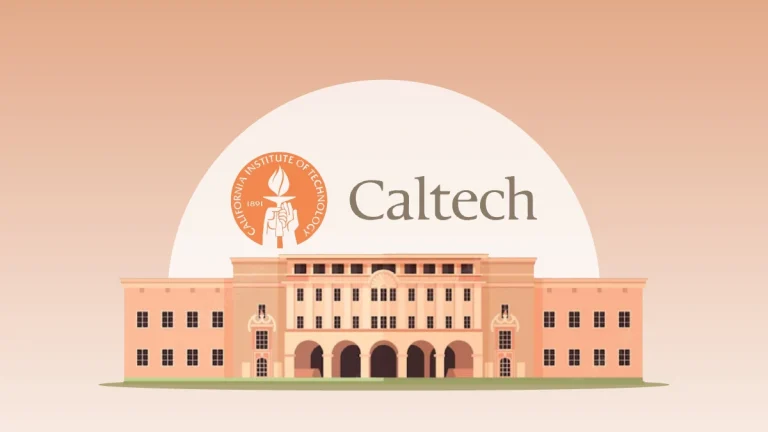
Human intellect and ambition have always been stretched to their limits in space exploration. The field of space travel appears to have an even more exciting and revolutionary future in light of the latest developments in AI. Hence. AI has the potential to completely change how we explore, comprehend, and make use of the universe. Take a close look at how AI and the Future of Space will influence travel in the future.
1. Autonomous Spacecraft and Rovers:
The creation of autonomous spacecraft and rovers is one of AI’s most important contributions to space exploration. These AI-powered devices can carry out jobs without the need for direct human involvement, increasing mission efficiency and lowering danger.

- Mars Rovers:
AI technologies on NASA’s Perseverance and Curiosity’s precursor enable them to traverse the Martian landscape on their own. They can make judgments in real time, avoid barriers, and locate intriguing geological aspects for further investigation because to their autonomy.
- Deep Space Probes:
In the far reaches of space, where connection lags with Earth make real-time control impracticable, artificial intelligence (AI) can allow probes to function autonomously. AI systems, for instance, can assist spacecraft in resource management, course correction, and scientific experimentation away from human supervision.
2. Enhanced Data Analysis:
A vast amount of data is produced during space missions, including gravitational measurements, photos, and spectroscopic readings. AI is excellent at finding patterns in massive datasets and deriving insightful information from them.

- Astronomical Data Processing:
Compared to conventional approaches, AI systems can identify exoplanets, supernovae, and other astronomical occurrences considerably more quickly and correctly by sorting through telescope data. Radio telescope emissions can be processed by machine learning algorithms to find new cosmic occurrences or indications of extraterrestrial intelligence.
- Earth Observation:
Data from satellites tracking the climate, deforestation, urbanization, and natural calamities is analyzed using artificial intelligence. Making prompt judgments for disaster response and environmental protection is aided by this study.
3. Mission Planning and Optimization:
AI can streamline space mission planning and execution, all the way from launch to landing and back.

- Trajectory Optimization:
Artificial intelligence is capable of determining the best fuel-efficient and time-efficient routes for spacecraft by taking into account celestial physics and gravitational assistance.
- Resource Management:
AI is capable of managing and keeping an eye on supplies like food, water, and oxygen during extended missions. It can forecast possible shortages and offer countermeasures, hence maintaining the viability of human spaceflight.
4. AI-Powered Research and Development:
The development of new technology for space exploration is accelerated by AI.

- Materials Science:
Scientists are able to create more durable and lightweight materials for spaceships and habitats by using machine learning algorithms that forecast the characteristics of novel materials.
- Biotechnology:
Artificial Intelligence facilitates study on the physiological effects of extended space travel and aids in the development of protective measures for astronauts’ well-being.
5. Human-AI Collaboration:
AI improves human capacities rather than merely substituting human labor. AI systems and astronauts working together can result in safer and more efficient flights.

- Intelligent Assistants:
AI-driven virtual assistants can support astronauts by providing real-time information, troubleshooting equipment issues, and even offering psychological support during long missions.
- Telepresence and Robotics:
AI-powered robots can perform complex tasks on the Moon or Mars while being remotely controlled by humans, combining human ingenuity with machine precision.
6. Exploring New Frontiers:
AI will be essential to exploring the farther and more difficult reaches of space.

- Deep Space Exploration:
Artificial Intelligence (AI) will be used by space missions to the outer planets, their moons, and beyond to perform science and navigate in conditions too far away for direct human control.
- Asteroid Mining:
AI is capable of locating and assessing asteroids to mine for important resources. With little human supervision, autonomous mining operations might extract and process resources to aid in the growth of off-Earth economies.
More Topics: How AI is Transforming the Job Market?
7. Ethical and Societal Implications:
Significant societal and ethical issues are brought up by AI’s increasing integration with space travel.

- Decision Making:
To guarantee safety and accountability, human monitoring must be balanced with the autonomy of AI systems in space missions.
- Access and Equity:
Global sharing of the advantages of AI-driven space exploration is necessary to prevent technology developments from widening the divide between developed and developing nations.
- Environmental Impact:
AI use in space should take into account its long-term effects on space surroundings and refrain from aggravating the space trash issue.
Conclusion:
In the future, artificial intelligence (AI) will be a vital tool for space travel. AI will expand our capabilities in space by facilitating autonomous operations, improving data analysis, streamlining missions, and encouraging human-AI cooperation. AI will not only assist us in discovering new worlds as we travel farther into space, but it will also make sure that our exploration is morally sound, sustainable, and advantageous to all of mankind.






